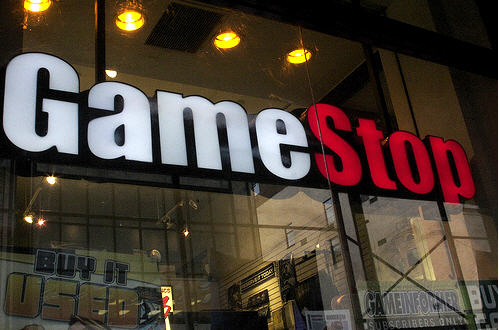 If you’re among the steadily shrinking group of consumers that purchases music CDs, you probably don’t think much about the materials used in packaging, but like any piece of plastic or paperboard, there’s a bit of environmental destruction involved in its production.
If you’re among the steadily shrinking group of consumers that purchases music CDs, you probably don’t think much about the materials used in packaging, but like any piece of plastic or paperboard, there’s a bit of environmental destruction involved in its production.
Setting out to tackle this problem with a study of sustainable CD packaging, the Recording Industry Association of America and the National Association of Recording Merchandisers offered up an interesting possibility: Buried deep in the 66-page report (PDF), released this week, is a suggestion to sell carbon offsets to individual consumers.
The study notes that Orbitz (and now Expedia and Travelocity) offer a similar option to their customers. The price of the offset is added to the bill, and the money goes to creators of sustainable energy and other eco-friendly causes.
In the music industry’s version, a customer could either buy a credit online or at a retail store when purchasing the CD. For incentive, the report talks of “exclusive access to merchandise or special offers.” Digital downloaders could get in on the act as well, as online music also carries “significant environmental impacts associated with running download servers and maintaining IT infrastructure, in addition to the amortized impacts of CD recording and production,” the study says.
As recently as today, Washington is considering a cap-and-trade program that would likely apply to CD packaging. Loading some of the burden onto the consumer would take pressure off the recording industry, but it runs the risk of guilt-tripping customers. Hopefully the incentives offered by the record labels would make carbon offsets feel more like a partnership than a way for big business to dodge taxes.
Of course, all of this is theoretical at the moment. I’ve called a spokesman at the RIAA to ask where this initiative stands, and I’ll post the response if it comes. Update: Okay, this came in pretty much immediately after I clicked “Publish.” Spokeswoman Cara Duckworth said the study is analysis and advisory. “It’s up to each company to determine what best works with their individual business plan,” she said.

 For as little as we know about Apple’s approval process for iPhone apps, I kind of expected the nin:access program — which allows fans of the band Nine Inch Nails to enjoy streaming music and other perks — to pass with flying colors. Apparently I was wrong, as the latest update to the application was denied.
For as little as we know about Apple’s approval process for iPhone apps, I kind of expected the nin:access program — which allows fans of the band Nine Inch Nails to enjoy streaming music and other perks — to pass with flying colors. Apparently I was wrong, as the latest update to the application was denied. Last week, The Times created a minor panic by reporting that
Last week, The Times created a minor panic by reporting that  Remember when Technologizer
Remember when Technologizer  It’s easy to imagine video games without discs or cartridges, but this downloadable future could spell disaster for GameStop. In a recent SEC filing, the world’s largest game retailer acknowledged that it sees the writing on the wall:
It’s easy to imagine video games without discs or cartridges, but this downloadable future could spell disaster for GameStop. In a recent SEC filing, the world’s largest game retailer acknowledged that it sees the writing on the wall: First off, that’s not me getting really excited in the headline. It’s just the dilemma you get when a product name comes with its own punctuation. Sigh.
First off, that’s not me getting really excited in the headline. It’s just the dilemma you get when a product name comes with its own punctuation. Sigh. We’re a little over a month away from the 2009 Electronic Entertainment Expo, more commonly known as E3, and Gamasutra has a nice create-a-story
We’re a little over a month away from the 2009 Electronic Entertainment Expo, more commonly known as E3, and Gamasutra has a nice create-a-story  As a concept, I like the
As a concept, I like the  Whether you’re nervous about a possible pandemic or just want to stay informed, some Google Maps mashups are making it easy to track the worldwide spread of swine influenza.
Whether you’re nervous about a possible pandemic or just want to stay informed, some Google Maps mashups are making it easy to track the worldwide spread of swine influenza. Fun shouldn’t have to be the be-all end-all of video games, so I approached Six Days in Fallujah, a game based on a bloody battle in Iraq,
Fun shouldn’t have to be the be-all end-all of video games, so I approached Six Days in Fallujah, a game based on a bloody battle in Iraq,